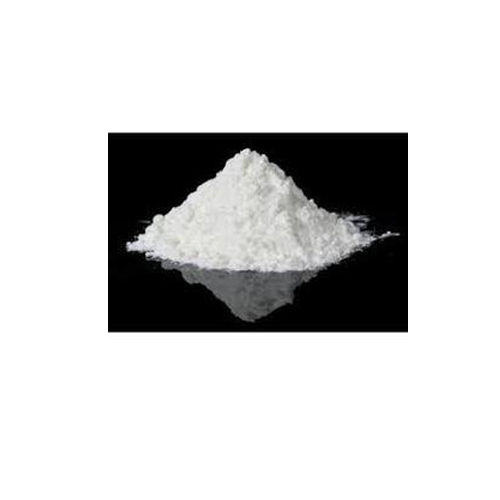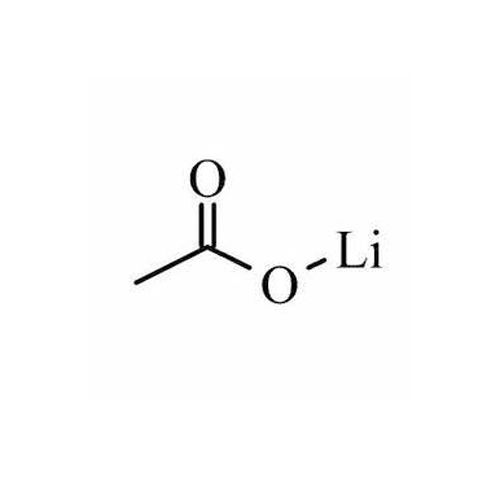
Lithium Carbonate Granules
Product Details:
- Form Powder
- Storage Room Temperature
- Melting Point 723 C
- Classification Organic Chemicals
- Grade Industrial Grade
- Type Lithium Carbonate Granules
- Click to view more
X
Lithium Carbonate Granules Price And Quantity
- 50 Gram
Lithium Carbonate Granules Product Specifications
- Powder
- Lithium Carbonate Granules
- Room Temperature
- Organic Chemicals
- 723 C
- Industrial Grade
Lithium Carbonate Granules Trade Information
- 50 Gram Per Month
- 2-12 Week
Product Description
To cater the specific needs of the clients we offer Lithium Carbonate Granules. This chemical compound is widely demanded for making various medicines that are used to treat manic episodes of bipolar disorders in mentally ill patients. Our adept professionals formulate these granules by utilizing superior quality chemicals and innovative techniques. Furthermore the offered product is made available for clients in several packaging options at pocket friendly prices.
Lithium Carbonate Properties:
1. CAS No: 554 13 2
2. Chemical Formula: Li2CO3
3. Molar mass: 73.891 g/mol
4. Density: 211 gcm3
5. Melting Point: 723 degree centigrade
6. Form: Granular powder
7. Color: White
8. Density: Around 2.11 g/cm3
Lithium Carbonate Applications:
1. Pharmaceutical Industry: Lithium carbonate is primarily used in psychiatry for the treatment of bipolar disorder. It helps stabilize mood and reduce the frequency and severity of manic episodes. Additionally, it may be used as a mood stabilizer in other psychiatric conditions.
2. Lithium-Ion Batteries: Lithium carbonate is a key component in the production of lithium-ion batteries, which are widely used in electronic devices such as smartphones, laptops, electric vehicles, and energy storage systems. It is used in the production of lithium cobalt oxide and lithium iron phosphate cathode materials.
3. Ceramics and Glass Industry: Lithium carbonate is utilized in the production of ceramics and glass, where it acts as a fluxing agent, reducing the melting temperature and improving the properties of the final product.
4. Aluminum Smelting: In the aluminum smelting industry, lithium carbonate is sometimes used as a flux to lower the melting point of aluminum oxide during the electrolytic extraction process.
5. Chemical Synthesis: Lithium carbonate serves as a precursor in the synthesis of various lithium compounds and organic compounds in chemical laboratories and industries.
6. Air Treatment: Lithium carbonate can be used in air treatment systems, particularly in carbon dioxide scrubbers where it reacts with carbon dioxide to form lithium bicarbonate.
7. Nuclear Industry: Lithium carbonate is used in the nuclear industry for various applications, including the production of lithium-6, which is used in the production of tritium for nuclear weapons and fusion reactors.
8. Desiccants: Lithium carbonate can act as a desiccant, absorbing moisture from the air, making it useful in certain industrial processes where moisture control is critical.
9. Pyrotechnics: Lithium carbonate is employed in pyrotechnic formulations to produce red flames in fireworks and other pyrotechnic displays.
10. Medical Research: Lithium carbonate is also used in medical research as a reagent in various biochemical assays and studies related to neurochemistry and psychiatry.
Lithium Carbonate Granules FAQ:
Q: What are lithium carbonate granules used for?
A: Lithium carbonate granules are primarily used in the pharmaceutical industry for the treatment of bipolar disorder and other psychiatric conditions. They are also used in industrial applications such as ceramics, glass production, and lithium-ion battery manufacturing.
Q: How do I take lithium carbonate granules?
A: Lithium carbonate granules are typically taken orally, usually with food to help reduce stomach upset. Follow your doctor's instructions and the medication label carefully for the correct dosage and administration.
Q: What should I do if I miss a dose of lithium carbonate granules?
A: If you miss a dose, take it as soon as you remember. However, if it is almost time for your next dose, skip the missed dose and continue with your regular dosing schedule. Do not double dose to make up for a missed one.
Q: Are there any side effects of lithium carbonate granules?
A: Like any medication, lithium carbonate granules may cause side effects. Common side effects include nausea, diarrhea, dizziness, tremors, and increased thirst. Serious side effects such as irregular heartbeat, seizures, or signs of lithium toxicity should be reported to your doctor immediately.
Q: Can I crush or chew lithium carbonate granules?
A: It's essential to take lithium carbonate granules exactly as prescribed. Do not crush, chew, or break the granules unless instructed by your doctor or pharmacist. Doing so may affect the medication's release mechanism and could lead to unwanted side effects or reduced efficacy.
Q: How should lithium carbonate granules be stored?
A: Store lithium carbonate granules at room temperature, away from moisture and heat. Keep the medication in its original container, tightly closed, and out of reach of children. Do not store in the bathroom or near the kitchen sink where it might be exposed to moisture.
Q: Can lithium carbonate granules interact with other medications?
A: Yes, lithium carbonate can interact with other medications, including diuretics, ACE inhibitors, NSAIDs, and antidepressants. Inform your doctor or pharmacist about all the medications you are currently taking, including prescription and over-the-counter drugs, as well as any herbal supplements, to avoid potential interactions.
Q: How long does it take for lithium carbonate granules to start working?
A: The therapeutic effects of lithium carbonate may not be noticeable immediately. It may take several weeks of consistent use before you experience the full benefits. Continue taking the medication as directed by your doctor, even if you feel well.
Q: Can I drink alcohol while taking lithium carbonate granules?
A: It's best to avoid alcohol while taking lithium carbonate, as it may increase the risk of side effects such as drowsiness, dizziness, and impaired judgment. Discuss any alcohol consumption with your doctor to ensure it is safe for you.
Tell us about your requirement

Price:
Quantity
Select Unit
- 50
- 100
- 200
- 250
- 500
- 1000+
Additional detail
Mobile number
Email
Other Products in 'Lithium' category
 |
AXIOM CHEMICALS PVT. LTD
All Rights Reserved.(Terms of Use) Developed and Managed by Infocom Network Private Limited. |








